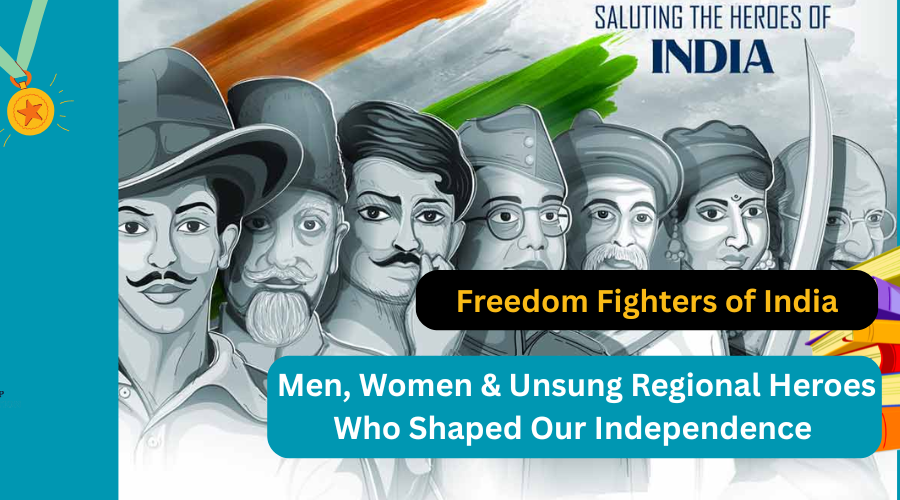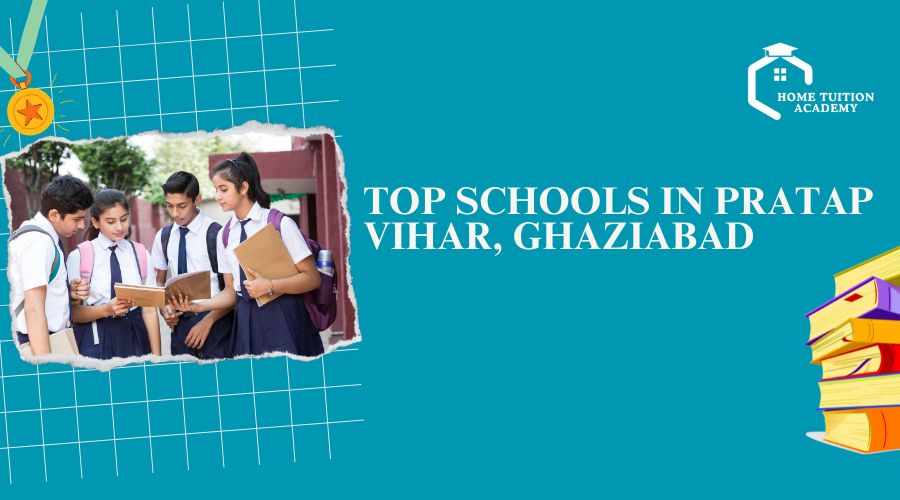India’s struggle for independence was one of the most remarkable movements in world history. It wasn’t just the work of a few leaders, but the collective effort of countless freedom fighters of India—men, women, and unsung regional heroes—who dedicated their lives to the dream of a free nation. From inspiring speeches to daring acts of rebellion, these Indian independence heroes played vital roles in mobilizing people across the country, spreading the spirit of freedom, and challenging British colonial rule.
Understanding the contributions of male and female freedom fighters helps us appreciate the sacrifices that led to our hard-won independence. While some names like Mahatma Gandhi and Subhas Chandra Bose are known worldwide, many lesser-known revolutionaries and regional freedom fighters of India showed extraordinary courage in their local communities. Sadly, these unsung heroes of Indian independence often remain overlooked, even though their stories are no less inspiring or important.
This blog will introduce you to the famous freedom fighters of India, highlight Indian freedom fighters list with both men and women, and bring to light the contributions of regional and unsung heroes who made the ultimate sacrifice. Through their life stories, we can better understand the contribution of freedom fighters in India, and why their legacy still shapes our identity as a nation.
Why We Must Remember Our Freedom Fighters
Remembering the freedom fighters of India is not just about honoring the past—it’s about understanding the foundations of our democracy, identity, and shared values. These Indian independence heroes fought tirelessly, sacrificing their comfort, safety, and sometimes their lives so that future generations could live with dignity and freedom.
Here’s why it’s essential to keep their stories alive:
- Preserving our history: By studying the journeys of both male and female freedom fighters, we keep alive the true story of India’s struggle for independence, ensuring it is passed down accurately to future generations.
- Inspiring courage and patriotism: The determination of these heroes, whether well-known or unsung heroes of Indian independence, inspires us to stand up for justice, equality, and the nation’s well-being.
- Recognizing regional contributions: Regional freedom fighters of India played crucial roles in mobilizing local communities, organizing revolts, and challenging British authority in diverse parts of the country. Their stories remind us that the freedom movement was a nationwide effort.
- Promoting unity in diversity: Freedom fighters came from every religion, caste, gender, and region, showcasing India’s strength in diversity and the collective resolve of its people.
- Understanding the value of freedom: By learning about the sacrifices made by these heroes, we better appreciate the rights and opportunities we have today—and the responsibility we carry to protect and strengthen them.
The contribution of freedom fighters in India is the reason we live in a sovereign, democratic country today. Keeping their memories alive ensures that their struggles and dreams continue to guide us in building a just, inclusive, and progressive nation.
Famous Male Freedom Fighters of India
1. Mahatma Gandhi
Mahatma Gandhi, the Father of the Nation, stands among the most famous freedom fighters of India, revered worldwide for his unwavering commitment to non-violence and truth. Leading pivotal movements like the Salt March, Non-Cooperation, and Quit India, he mobilized millions against colonial oppression through Satyagraha.
Key Contribution: Uniting diverse communities in peaceful resistance.
Legacy: Gandhi’s ideals of Ahimsa and justice continue to inspire global struggles for freedom, equality, and human rights.
2. Subhas Chandra Bose
Subhas Chandra Bose, fondly known as Netaji, remains a legendary Indian independence hero celebrated for his fierce defiance of British rule. By founding the Indian National Army (INA) and proclaiming the Azad Hind Government, he infused the freedom struggle with revolutionary zeal.
Key Contribution: Organizing armed resistance against colonial forces.
Legacy: Bose’s bold leadership and passionate call for complete independence immortalized him as one of the most daring male freedom fighters in India’s history.
3. Bhagat Singh
Bhagat Singh, a symbol of fearless patriotism, is remembered as one of the youngest yet most influential freedom fighters of India. Through acts like the Assembly bombing and the execution of Saunders, he awakened a new wave of revolutionary fervor among Indian youth.
Key Contribution: Shaking the conscience of the nation with radical activism.
Legacy: His martyrdom at just 23 transformed him into an icon of bravery and uncompromising devotion to India’s freedom.
4. Jawaharlal Nehru
Jawaharlal Nehru, India’s first Prime Minister and a visionary among Indian independence heroes, played a central role in steering the freedom movement toward complete sovereignty. As a close associate of Gandhi, he led mass movements and inspired Indians with his progressive ideals.
Key Contribution: Advocating for Purna Swaraj and building India’s democratic institutions.
Legacy: Nehru’s enduring vision of a secular, modern nation laid the bedrock for India’s post-independence growth and unity.
5. Sardar Vallabhbhai Patel
Sardar Vallabhbhai Patel, rightly hailed as the Iron Man of India, was a formidable male freedom fighter and architect of national unity. His leadership during the Bardoli Satyagraha demonstrated his unwavering resolve, and post-independence, he played an unmatched role in integrating princely states.
Key Contribution: Uniting over 500 princely states into the Indian Union.
Legacy: Patel’s determination and administrative acumen secured India’s territorial integrity, earning him a place among the greatest freedom fighters of India.
6. Bal Gangadhar Tilak
Bal Gangadhar Tilak, known as Lokmanya Tilak, was among the earliest and most resolute freedom fighters of India, famously declaring, “Swaraj is my birthright and I shall have it.” His fiery speeches and writings in Kesari and Maratha awakened nationalist fervor.
Key Contribution: Pioneering mass mobilization through the Swadeshi and Home Rule movements.
Legacy: Tilak’s unwavering advocacy for self-rule earned him the title “Father of Indian Unrest,” inspiring countless Indian independence heroes.
7. Lala Lajpat Rai
Lala Lajpat Rai, the “Lion of Punjab,” was a fearless male freedom fighter who dedicated his life to challenging colonial injustices. He led protests against oppressive policies, including the Simon Commission, where he sustained fatal injuries during a brutal police lathi charge.
Key Contribution: Galvanizing resistance in Punjab and advocating education reforms.
Legacy: Rai’s sacrifice became a rallying cry for revolutionaries like Bhagat Singh, cementing his place among the bravest freedom fighters of India.
8. Dr. Rajendra Prasad
Dr. Rajendra Prasad, a towering figure among Indian independence heroes, combined intellectual brilliance with humble service. He was a key leader in Gandhi’s Champaran Satyagraha and later became the first President of independent India.
Key Contribution: Leading the Constituent Assembly to draft the Indian Constitution.
Legacy: Prasad’s integrity and wisdom helped shape India’s democratic framework, making him an enduring symbol of principled leadership among male freedom fighters.
9. Chandra Shekhar Azad
Chandra Shekhar Azad, a fearless revolutionary, pledged never to be captured alive by the British, living up to his vow with unmatched courage. As a mentor to Bhagat Singh and a leader of the Hindustan Socialist Republican Association (HSRA), he orchestrated daring attacks on colonial establishments.
Key Contribution: Organizing revolutionary activities to disrupt British control.
Legacy: Azad’s fierce spirit and ultimate sacrifice made him a legendary freedom fighter of India, inspiring generations.
10. Mangal Pandey
Mangal Pandey, often hailed as the first spark of India’s freedom struggle, led the 1857 uprising that marked the country’s first war of independence. His defiance against British officers at Barrackpore ignited nationwide resistance.
Key Contribution: Triggering the 1857 revolt, uniting Indians against colonial rule.
Legacy: As one of the earliest male freedom fighters, Pandey’s rebellion is remembered as the catalyst that awakened India’s collective desire for liberation.
11. Bipin Chandra Pal
Bipin Chandra Pal, one of the dynamic Lal-Bal-Pal trio, was a fiery nationalist and prominent freedom fighter of India who infused the independence struggle with radical ideas. Through his powerful speeches and writings, he popularized the Swadeshi and boycott movements.
Key Contribution: Advocating aggressive nationalism and economic self-reliance.
Legacy: Pal’s intellectual leadership and uncompromising stand on self-rule inspired a generation of revolutionaries, earning him a lasting place among Indian independence heroes.
12. Dadabhai Naoroji
Dadabhai Naoroji, revered as the “Grand Old Man of India,” was a pioneering figure among male freedom fighters, championing India’s cause on the world stage. He exposed British economic exploitation through his Drain Theory, highlighting how colonial rule impoverished India.
Key Contribution: First Indian elected to the British Parliament, raising India’s plight internationally.
Legacy: Naoroji’s advocacy for economic justice laid the groundwork for the demand for self-governance and inspired countless freedom fighters of India.
13. Gopal Krishna Gokhale
Gopal Krishna Gokhale, a respected moderate among early Indian independence heroes, emphasized social reforms and constitutional means to attain self-rule. As Gandhi’s political mentor, he influenced the trajectory of India’s freedom movement.
Key Contribution: Founding the Servants of India Society to promote education and civic rights.
Legacy: Gokhale’s commitment to democratic values and inclusive politics continues to be celebrated among male freedom fighters as a beacon of ethical leadership.
Famous Women Freedom Fighters of India
1. Rani Lakshmibai
Rani Lakshmibai of Jhansi, one of the most famous women freedom fighters in India, became a legendary figure during the 1857 revolt. Known for her exceptional courage, she led her troops into battle against British forces, fighting fiercely to defend Jhansi.
Key Contribution: Inspiring widespread resistance during the First War of Independence.
Legacy: Rani Lakshmibai’s fearless stand turned her into a national symbol of bravery, valor, and unwavering patriotism among Indian independence heroes.
2. Sarojini Naidu
Sarojini Naidu, the “Nightingale of India,” was a celebrated poet and prominent female freedom fighter who played a leading role in the Civil Disobedience and Quit India movements. She was the first woman President of the Indian National Congress and later became the first female Governor of an Indian state.
Key Contribution: Mobilizing women and promoting women’s rights in the independence struggle.
Legacy: Naidu’s eloquence and leadership made her an enduring icon among famous women freedom fighters in India.
3. Kasturba Gandhi
Kasturba Gandhi, wife of Mahatma Gandhi, was a quiet yet resolute Indian independence hero who worked tirelessly alongside her husband. She led protests, championed women’s rights, and courageously faced imprisonment for the cause of freedom.
Key Contribution: Encouraging rural women to join the movement and promoting education.
Legacy: Kasturba’s selfless contributions and strength made her a revered figure among female freedom fighters, exemplifying the power of grassroots activism.
4. Aruna Asaf Ali
Aruna Asaf Ali, known for her fiery spirit, became an iconic female freedom fighter during the Quit India Movement of 1942 by hoisting the Indian National Congress flag at Mumbai’s Gowalia Tank Maidan. She endured imprisonment and went underground to continue resistance.
Key Contribution: Symbolizing defiance against colonial repression during Quit India.
Legacy: Remembered as the “Grand Old Lady of the Independence Movement,” her bold actions earned her lasting respect among famous women freedom fighters in India.
5. Madam Bhikaji Cama
Madam Bhikaji Cama, a fearless patriot and pioneer among famous women freedom fighters in India, was instrumental in promoting India’s independence abroad. In 1907, she unfurled the first version of India’s flag in Stuttgart, Germany.
Key Contribution: Rallying international support for India’s freedom and publishing revolutionary literature.
Legacy: Madam Cama’s advocacy on foreign soil and steadfast dedication made her an inspiring figure among early Indian independence heroes.
6. Begum Hazrat Mahal
Begum Hazrat Mahal, a fearless leader and one of the earliest famous women freedom fighters in India, played a crucial role during the 1857 revolt. After her husband Nawab Wajid Ali Shah was exiled, she led the uprising in Awadh, reclaiming Lucknow and challenging British forces.
Key Contribution: Organizing and leading armed resistance in North India.
Legacy: Begum Hazrat Mahal’s courage and leadership made her an enduring symbol of resistance among female freedom fighters.
7. Kamala Nehru
Kamala Nehru, an inspiring female freedom fighter, actively participated in the Non-Cooperation and Civil Disobedience movements alongside her husband Jawaharlal Nehru. She mobilized women, led protests, and was arrested for her fearless involvement.
Key Contribution: Encouraging women’s participation in the freedom struggle and championing Swadeshi.
Legacy: Kamala Nehru’s quiet strength and dedication made her a respected figure among famous women freedom fighters in India, embodying the spirit of sacrifice.
8. Captain Lakshmi Sahgal
Captain Lakshmi Sahgal, a trailblazing female freedom fighter, was a commander in Netaji Subhas Chandra Bose’s Indian National Army (INA), leading the Rani of Jhansi Regiment. She broke gender barriers by taking up arms against the British.
Key Contribution: Proving women’s capability in combat and inspiring countless young women.
Legacy: Captain Lakshmi’s fearless service made her an unforgettable name among famous women freedom fighters in India, and she continued serving society post-independence.
9. Durgabai Deshmukh
Durgabai Deshmukh, a pioneering social reformer and female freedom fighter, joined the freedom struggle as a teenager, participating in Salt Satyagraha and other movements. She worked tirelessly for women’s education and rights, founding the Andhra Mahila Sabha.
Key Contribution: Advocating for social justice, women’s empowerment, and legal reforms.
Legacy: Durgabai’s commitment to nation-building and gender equality made her a revered Indian independence hero, earning her the title “Mother of Social Work in India.”
10. Usha Mehta
Usha Mehta, a fearless female freedom fighter, is best remembered for organizing the secret Congress Radio during the Quit India Movement in 1942, which broadcasted uncensored news and messages of revolution. Despite arrest and torture, she never betrayed the cause.
Key Contribution: Spreading nationalist messages through underground radio.
Legacy: Usha Mehta’s courage and ingenuity made her one of the bravest famous women freedom fighters in India, inspiring youth to fight colonial oppression.
Unsung Regional Heroes of Indian Independence
1. Alluri Sitarama Raju
Alluri Sitarama Raju was a fearless tribal leader and one of the most revered unsung heroes of Indian independence. Leading the Rampa Rebellion (1922-24) in Andhra Pradesh, he mobilized tribal communities against British exploitation and oppressive policies.
Key Contribution: Guerrilla warfare and tribal uprising to protect indigenous rights.
Legacy: Raju’s courageous resistance made him a legendary regional freedom fighter of India, inspiring tribal movements and local pride.
2. Rani Gaidinliu
Rani Gaidinliu was a powerful tribal freedom fighter from Nagaland who led the Heraka religious and political movement against British rule. Arrested at a young age, she spent many years imprisoned for her activism.
Key Contribution: Leading tribal revolts and promoting indigenous cultural revival.
Legacy: Celebrated among unsung heroes of Indian independence, Gaidinliu’s dedication brought attention to Northeast India’s role in the freedom struggle.
3. Birsa Munda
Birsa Munda, a tribal revolutionary from Jharkhand, ignited the Munda Rebellion against British landlords and missionaries. His leadership combined spiritual awakening with political resistance.
Key Contribution: Mobilizing tribal communities against exploitation and advocating for land rights.
Legacy: Birsa Munda is honored as a heroic regional freedom fighter of India, with his legacy continuing in tribal identity and rights movements.
4. Khudiram Bose
Khudiram Bose was one of the youngest and bravest regional freedom fighters of India, hailing from Bengal. At just 18, he participated in revolutionary activities against the British, including a bomb attack targeting colonial officials.
Key Contribution: Early revolutionary acts that ignited youth participation in the freedom struggle.
Legacy: Khudiram’s martyrdom made him a symbol of youthful patriotism and an important name in the Indian freedom fighters list.
5. Veer Savarkar
Veer Savarkar was a prominent nationalist leader and revolutionary from Maharashtra, known for his militant advocacy of independence. He propagated Hindutva ideology and authored influential works on freedom and social reform.
Key Contribution: Leading revolutionary movements abroad and inspiring armed resistance.
Legacy: Savarkar remains a controversial yet key figure among unsung heroes of Indian independence, especially in regional nationalist history.
6. Tantia Bhil
Tantia Bhil, often called the “Robin Hood of India,” was a tribal rebel leader from Madhya Pradesh who led guerrilla warfare against British rule. He fought to protect tribal lands and people from colonial exploitation.
Key Contribution: Organizing tribal resistance and direct action against British forces.
Legacy: Tantia Bhil is celebrated as a heroic regional freedom fighter of India, inspiring tribal pride and resistance narratives.
7. Alluri Sitarama Raju
Alluri Sitarama Raju was a fearless tribal leader from Andhra Pradesh who led the Rampa Rebellion against British colonial forces in the 1920s. He mobilized tribal communities to fight against exploitative policies and harsh taxation.
Key Contribution: Guerrilla warfare tactics to resist British authority and protect tribal rights.
Legacy: Raju is remembered as a courageous regional freedom fighter of India, inspiring future tribal movements and symbolizing indigenous resistance.
8. Komaram Bheem
Komaram Bheem was a tribal leader from Telangana who fought for the rights of the Gond tribes against the oppressive rule of the Nizam and British officials. He championed land rights and tribal autonomy.
Key Contribution: Leading armed resistance and advocating tribal self-rule.
Legacy: Bheem is honored as an important unsung hero of Indian independence, with his legacy celebrated in Telangana and tribal communities nationwide.
9. Veer Lorik
Veer Lorik was a legendary folk hero and regional freedom fighter from Bihar who resisted feudal oppression and Mughal dominance in medieval India. His stories continue to inspire local resistance.
Key Contribution: Leading popular uprisings against injustice and tyranny.
Legacy: Lorik symbolizes grassroots resistance and is considered a regional freedom fighter of India whose legacy lives in folk culture.
10. Birsa Munda
Birsa Munda was a tribal leader from Jharkhand who spearheaded the Munda Rebellion against British colonial rule and exploitative landlords in the late 19th century. He combined spiritual revival with political resistance to unify tribal communities.
Key Contribution: Mobilizing tribal people for land rights and autonomy.
Legacy: Birsa Munda remains a celebrated regional freedom fighter of India and a symbol of indigenous identity and resistance.
Conclusion
India’s struggle for independence was shaped by the valor and sacrifices of countless famous freedom fighters of India, courageous female freedom fighters, and brave regional freedom fighters of India whose contributions continue to inspire the nation. From the legendary leaders like Mahatma Gandhi to the tribal heroes like Birsa Munda, each played a unique role in shaping India’s destiny. Remembering these heroes not only honors their legacy but also strengthens the collective pride and unity of modern India. Learning about these freedom fighters — their lives, struggles, and ideals — is essential for every citizen who values the hard-won freedom of the country.
Frequently Asked Questions (FAQs)
Q1. Who are some of the most famous freedom fighters of India?
Some of the most famous freedom fighters of India include Mahatma Gandhi, Jawaharlal Nehru, Bhagat Singh, Rani Lakshmibai, and Subhas Chandra Bose. These leaders played pivotal roles in India’s struggle for independence through non-violent resistance and revolutionary activities.
Q2. What contributions did women freedom fighters make during India’s independence movement?
Women freedom fighters like Sarojini Naidu, Rani Lakshmibai, Kasturba Gandhi, and Aruna Asaf Ali actively participated in protests, led movements, and inspired millions. Their bravery and leadership significantly shaped the freedom struggle and encouraged women’s involvement in politics.
Q3. Who are some unsung regional heroes of Indian independence?
Unsung heroes include tribal leaders like Birsa Munda, Alluri Sitarama Raju, Rani Gaidinliu, and Tantia Bhil. These regional freedom fighters led local uprisings, protected indigenous rights, and played crucial roles that are often less highlighted in mainstream history.
Q4. How did freedom fighters contribute to India’s independence?
Freedom fighters contributed through various means, including non-violent protests, civil disobedience, armed revolts, social reforms, and international advocacy. Their sacrifices united people across regions and communities to demand freedom from British rule.
Q5. Why is it important to remember all types of freedom fighters?
Remembering both famous and unsung freedom fighters honors the diverse efforts and sacrifices that led to India’s independence. It helps educate future generations about the multifaceted nature of the struggle and inspires continued patriotism and social responsibility.





